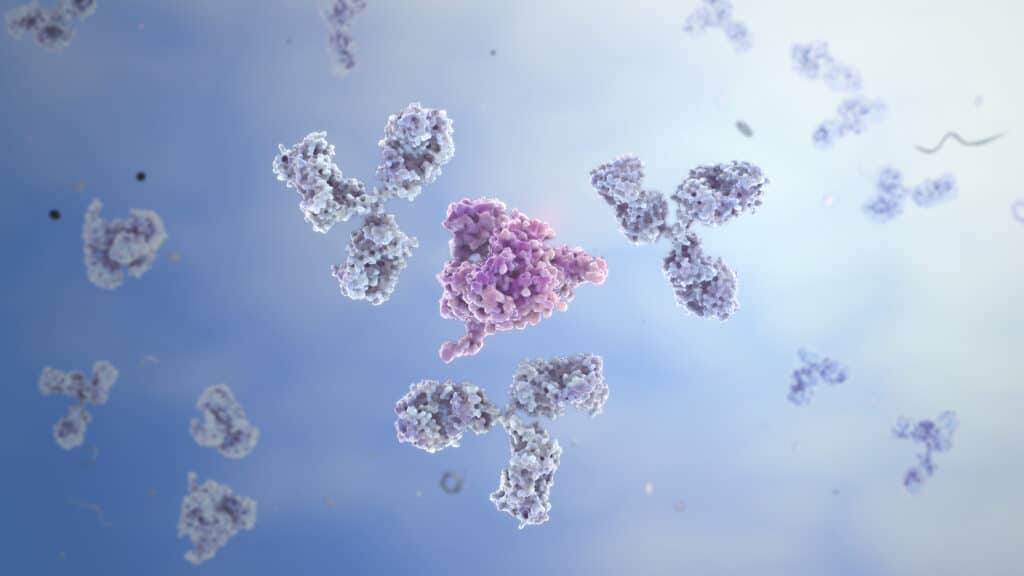In a case relating to patents for global blockbuster biologic Humira™ (Adalimumab), the Full Federal Court has drawn a bright line around the limitations of the PTE regime in Australia, excluding from eligibility swiss style claims. The Court confirmed that the PTE regime in Australia concerns pharmaceutical substances, and found that swiss style claims are not claims to pharmaceutical substances and are not PTE eligible.
The AbbVie decision is an important one, because it is the first time the Australian Courts have considered s70(2)(b) of the Patents Act, which outlines special conditions for extensions of term where recombinant technology is used.
It is also a timely decision for biosimilars developers attempting to deal with the multiple patent barriers to launch, removing (subject to any High Court appeal) three patent hurdles, and clarifying the PTE position for other patents with “swiss style” claims. Although no “clearing the way” or infringement suits have commenced in Australia regarding Humira™ yet, given the Adalimumab patent landscape, the number of patents involved in any such litigation will be very significant. In parallel US BPCIA proceedings commenced in Sept 2016 and July 2017, AbbVie asserted 10 and 8 Humira™ patents against Amgen and Boehringer Ingelheim respectively, but listed 51 and 66 additional patents (respectively) that could be asserted in subsequent BPCIA litigations. Even for a blockbuster like Humira™, the costs involved in litigating to remove 60-70 patent barriers to launch for a market the size of Australia, will likely be prohibitive. For biosimilar developers, the AbbVie decision picks off three.
The Humira™ PTE case
On 18 August 2017, the Full Federal Court (Besanko, Yates & Beach JJ) handed down its decision in Cmr of Patents v AbbVie Biotechnology Ltd [2017] FCAFC 129, on appeal from the decision of the Administrative Appeals Tribunal, in turn on appeal from a decision of the Patent Office.
All of the claims in suit were “swiss style” claims, i.e, claims to the use of a substance in the manufacture of a medicament to be administered for a therapeutic purpose, as summarised below:
-
2012261708 – Use of AmAb in the manufacture of a medicament for the treatment of ulcerative colitis; Unextended expiry: 10 Feb 17; PTE sought until: 10 Feb 22 (ARTG approval of indication on 23 Jul 13).
-
2013203420 – Use of AmAb in the manufacture of a medicament for the treatment of Chron’s disease; Unextended expiry: 10 Feb 17; PTE sought until: 10 Feb 22 (ARTG approval of indication on 29 Jun 07).
-
2013257402 – Use of AmAb in the manufacture of a medicament for the treatment of rheumatoid spondylitis; Unextended expiry: 10 Feb 17; PTE sought until: 10 Aug 21 (ARTG approval of indication on 10 Aug 06).
As the Court held that swiss style claims are not extensible under s70(2)(b) of the Patents Act (subject to any potential further appeal to the High Court) the patents in suit have now expired in Australia.
PTE AU under s70(2) of the Patents Act
S70(2) of the Patents Act outlines the following conditions for PTE eligibility (among others):
“Either or both of the following conditions must be satisfied:
(a) one or more pharmaceutical substances per se must in substance be disclosed in the complete specification of the patent and in substance fall within the scope of the claim or claims of that specification;
(b) one or more pharmaceutical substances when produced by a process that involves the use of recombinant DNA technology, must in substance be disclosed in the complete specification of the patent and in substance fall within the scope of the claim or claims of that specification.”
PTEs in Australia under section 70(2)(a) have been tested in various small molecule litigations. In short, the PTE regime was intended to apply to substance/product claims, but the Courts have broadened out the patents that can be extended under section 70(2)(a) to include product-by-process patents, and formulation patents. Case law has confirmed that process claims are excluded from extensibility under s70(2)(a).
The AbbVie decision is the first Court decision addressing s70(2)(b) of the Patents Act which outlines special conditions for extensions of term where recombinant technology is used. The Court confirmed that where recombinant DNA technology is used, it is the pharmaceutical substance so produced that must be the subject matter of the claim to be PTE eligible.
The Court made the following key findings:
- Both s70(2)(a) and s70(2)(b) concern pharmaceutical substances.
- Swiss style claims are not claims to pharmaceutical substances.
- The claims in suit are not directed to AmAb produced by recombinant DNA technology.
- To be extensible under s70(2)(b), it is the pharmaceutical substance that must be the subject matter of the claim, not the method or process (beyond recombinant DNA technology) involving the substance.
Closing the final issue, the Court said: “The fact that, in the present case, the claims in suit are in the form of Swiss type claims necessarily means that the pharmaceutical substance in question (adalimumab) does not “in substance fall within the scope of the claim or claims” of the specifications in suit, within the meaning of s 70(2)(b). The claims in suit are of an entirely different scope……” (Paragraph 61)
No PTE reform in Australia
The AbbVie decision was handed down just a week before the Australian Government responded to the Productivity Commission Report indicating that it currently has no intention to overhaul the PTE regime in Australia, despite significant (generic/biosimilar) industry pressure to do so.


Naomi Pearce
CEO, Executive Lawyer (AU, NZ), Patent & Trade Mark Attorney (AU, NZ)
Naomi is the founder of Pearce IP, and is one of Australia’s leading IP practitioners. Naomi is a market leading, strategic, commercially astute, patent lawyer, patent attorney and trade mark attorney, with over 25 years’ experience, and a background in molecular biology/biochemistry. Ranked in virtually every notable legal directory, highly regarded by peers and clients, with a background in molecular biology, Naomi is renown for her successful and elegant IP/legal strategies.
Among other awards, Naomi is ranked in Chambers, IAM Patent 1000, IAM Strategy 300, is a MIP “Patent Star”, and is recognised as a WIPR Leader for patents and trade marks. Naomi is the 2023 Lawyers Weekly “IP Partner of the Year”, the 2022 Lexology client choice award recipient for Life Sciences, the 2022 Asia Pacific Women in Business Law “Patent Lawyer of the Year” and the 2021 Lawyers Weekly Women in Law SME “Partner of the Year”. Naomi is the founder of Pearce IP, which commenced in 2017 and won 2021 “IP Team of the Year” at the Australian Law Awards.

